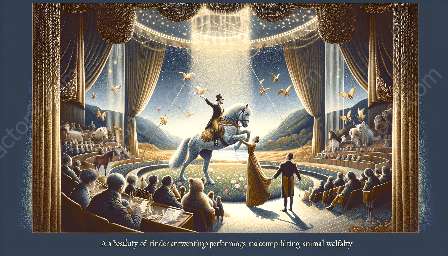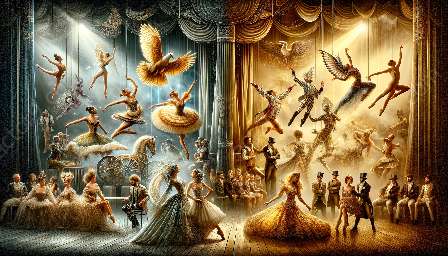Contortion is an art form that requires extreme flexibility and strength, often associated with circus performances. Contortionists can twist and bend their bodies in seemingly impossible ways, showcasing stunning displays of physical skill and prowess. The intense physical demand of contortion training raises the question: how does contortion training impact muscle strength and endurance?
Understanding Contortion
To understand the impact of contortion training on muscle strength and endurance, it's essential to delve into the nature of contortion itself. Contortion involves a combination of flexibility, strength, and control as performers bend, twist, and mould their bodies into various poses and shapes. These movements require exceptional muscle control, flexibility, and stability, making contortion an intense physical discipline.
Impact on Muscle Strength
Contortion training significantly impacts muscle strength, particularly in the core, back, and limbs. The extreme positions and movements required in contortion exercises engage and challenge the muscles in unique and strenuous ways, leading to the development of significant muscular strength. The repeated practice of contortion poses helps build muscular endurance and resistance, contributing to the overall strength of the performer's body.
Engaging in contortion training leads to the strengthening of major muscle groups, including the abdominals, obliques, back extensors, and leg muscles. These muscle groups play a crucial role in supporting the body during contortion poses, and as a result, they experience substantial strengthening due to the rigorous training and practice regimen.
Enhancing Endurance through Contortion
Contortion training also positively impacts muscle endurance. The continuous and prolonged holds of contortion poses demand sustained muscular effort, leading to increased endurance over time. As performers train and practice, their muscles adapt to the demands of holding challenging positions, improving their endurance capabilities.
Furthermore, the dynamic nature of contortion movements requires the muscles to adapt to various ranges of motion, leading to a well-rounded enhancement of muscular endurance. This development of endurance and stamina is vital for contortionists, enabling them to maintain their poses and performances for extended periods.
Flexibility and Muscle Health
While contortion training focuses on extreme flexibility, it also promotes muscle health and flexibility in a balanced manner. The controlled stretching and elongation of muscles during contortion exercises contribute to improved flexibility and overall muscle health. This balanced emphasis on flexibility and strength promotes a holistic approach to muscular development, creating versatile and resilient muscles in contortion performers.
Additionally, the nuanced control and engagement of muscles required for contortion poses help prevent injury and promote overall muscle wellness. The training regimen encourages the development of a strong mind-muscle connection, enhancing both physical and mental awareness of the body's capabilities and limitations.
Relevance to Circus Arts
The impact of contortion training on muscle strength and endurance directly aligns with the requirements of circus arts. In the realm of circus performances, contortionists are expected to execute awe-inspiring feats of flexibility and strength, captivating audiences with their remarkable abilities.
As circus arts encompass a wide range of physical disciplines, including acrobatics, aerial performances, and ground-based acts, contortion training contributes to the overall physical preparedness of circus performers. The development of enhanced muscle strength and endurance through contortion training complements and enriches the skill sets of circus artists, enabling them to deliver dynamic and impactful performances.
Overall, the impact of contortion training on muscle strength and endurance showcases its significance within the realm of circus arts, contributing to the physical mastery and artistic expression of performers.
In conclusion, contortion training profoundly impacts muscle strength and endurance, fostering the development of robust and resilient muscular capabilities. The combination of flexibility, strength, and endurance cultivated through contortion practices not only supports the physical prowess of performers but also enhances their artistic performances within the context of circus arts.


































